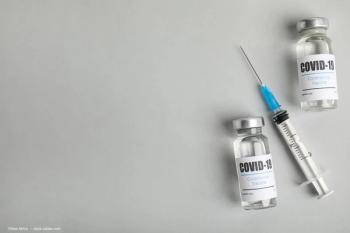
AMA supports House plan to ease Medicare loan repayment terms
The American Medical Association is expressing its support for provisions in proposed Continuing Resolution legislation in Congress that could offer relief to financially strapped physician practices.
The American Medical Association (AMA) this week voiced its support for provisions in proposed Continuing Resolution legislation in Congress that would offer relief to financially strapped physician practices.
According to a statement from the office of House Speaker Nancy Pelosi, the House of Representatives is expected to vote this week on a continuing resolution to keep the government funded through Dec. 11.
“The Continuing Resolution introduced today will avert a catastrophic shutdown in the middle of the ongoing pandemic, wildfires and hurricanes, and keep government open until Dec. 11, when we plan to have bipartisan legislation to fund the government for this fiscal year,” Pelosi said in a statement.
The Continuing Resolution includes provisions that would benefit physician practices feeling the financial pinch amid the pandemic.
According to a statement from the AMA, revisions to the Medicare Accelerated and Advance Payments program (AAP) included in the resolution will help keep doors open during the pandemic and continue to offer patients access at this time.
“Upon passage of the Continuing Resolution, patients should know that their physician is more likely to weather the pandemic’s economic challenges,” AMA President Susan A. Bailey, MD, said in a statement. “Congress recognized the danger, and rightfully modified the program so physicians can keep seeing patients.”
According to the release, Centers for Medicare & Medicaid Services worked quickly in the spring to provide financial assistance to physicians, which proved to be a lifeline for many practices.
The AMA also noted in its release that it also appreciated that the CARES Act postponed the start of recoupment for the AAP until 120 days after initial payment and allows up to 210 days for repayment for physicians.
There have been some concerns from physicians regarding their ability to repay the money during the economic conditions amid the pandemic.
The AMA release noted that earlier this year, surveys showed that from March to May revenues in physician offices were down at least 50 percent. As practices began reopening, some physicians were able to recoup some of the loss but not all due to reduced visits and procedures.
Moreover, the AMA noted in its release that the repayment terms are difficult to achieve. According to those terms, physicians would have all of their Medicare claims withheld to repay the loans on a short timeline. After a few months, any outstanding balances a physician might have would be subjected to a 10.25 percent interest rate.
According to the release, the Continuing Resolution would postpone the recoupment of disbursed funds until 1 year after the advance payment has been issued to a physician practice. The balance would be due by September 2022.
The resolution also would reduce the per claim recoupment amount from 100 percent to 25 percent for the first 11 months and the 50 percent of claims withheld for an additional six months. If not repaid in full, the interest rate kicks in. That interest rate also would be lowered from 10.25 percent to 4 percent.
“Members of Congress and the Administration have settled on a bipartisan response to the economic sword hanging over physician practices. This relief will be felt across the county as physicians will be able to continue providing health care during the pandemic,” Bailey concluded in the statement.
If approved in the House, the proposal would then go to the Senate for a vote.
Newsletter
Don’t miss out—get Ophthalmology Times updates on the latest clinical advancements and expert interviews, straight to your inbox.





























